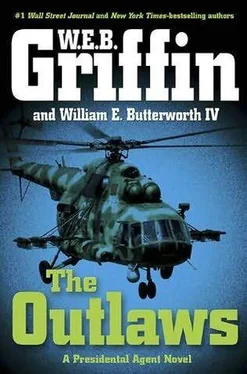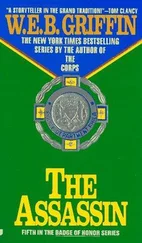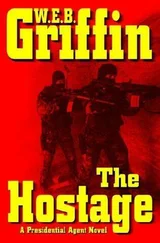W Griffin - The outlaws
Здесь есть возможность читать онлайн «W Griffin - The outlaws» весь текст электронной книги совершенно бесплатно (целиком полную версию без сокращений). В некоторых случаях можно слушать аудио, скачать через торрент в формате fb2 и присутствует краткое содержание. Жанр: Триллер, на английском языке. Описание произведения, (предисловие) а так же отзывы посетителей доступны на портале библиотеки ЛибКат.
- Название:The outlaws
- Автор:
- Жанр:
- Год:неизвестен
- ISBN:нет данных
- Рейтинг книги:3 / 5. Голосов: 1
-
Избранное:Добавить в избранное
- Отзывы:
-
Ваша оценка:
- 60
- 1
- 2
- 3
- 4
- 5
The outlaws: краткое содержание, описание и аннотация
Предлагаем к чтению аннотацию, описание, краткое содержание или предисловие (зависит от того, что написал сам автор книги «The outlaws»). Если вы не нашли необходимую информацию о книге — напишите в комментариях, мы постараемся отыскать её.
The outlaws — читать онлайн бесплатно полную книгу (весь текст) целиком
Ниже представлен текст книги, разбитый по страницам. Система сохранения места последней прочитанной страницы, позволяет с удобством читать онлайн бесплатно книгу «The outlaws», без необходимости каждый раз заново искать на чём Вы остановились. Поставьте закладку, и сможете в любой момент перейти на страницу, на которой закончили чтение.
Интервал:
Закладка:
"And then we're going to wait for their next move. No action of any kind will be taken without my express approval."
The President met the eyes of everyone in the Oval Office, and then quietly asked, "Is there anyone who doesn't understand what I have just said?"
There were no replies.
"That will be all, thank you," the President said. [ONE] The Hotel Gellert Szent Gellert ter 1 Budapest, Hungary 2315 4 February 2007 The silver, two-month-old, top-of-the-line Mercedes-Benz S550 drove regally across the Szabadsag hid, and on the other side of the Danube River turned left toward the Hotel Gellert, which was at the foot of the Gellert Hill.
Budapest, which began as two villages, Buda and Pest, on opposite sides of the Danube River, had a long and bloody history. Gellert Hill, for example, got its name from Saint Gerard Gellert, an Italian bishop from Venice whom the pagans ceremoniously murdered there in 1046 A.D. for trying to bring the natives to Jesus.
Buda and Pest were both destroyed by the Mongols, who invaded the area in 1241. The villages were rebuilt, only to suffer rape and ethnic cleansing when the Ottoman Turks came, conquering Pest in 1526 and Buda fifteen years later.
By the time the Szabadsag hid was built in 1894-96, the villages had been combined into Budapest, and Hungary had become part of the Austro-Hungarian Empire. Emperor Franz Josef personally inserted the last rivet-a silver rivet-into the new bridge and then with imperial immodesty named the structure after himself.
The bridge itself was dropped-like all the other bridges across the Danube-into the river when the Russians and the Germans fought over Hungary during the Second World War. It was the first bridge rebuilt after the war by the Soviet-controlled government and named the Liberty Bridge. When the Russians were finally evicted, it became the Freedom Bridge.
The silver Mercedes-Benz turned off the road running alongside the Danube and onto the access road to the Hotel Gellert, then stopped.
Gustav, a barrel-chested man in his fifties who appeared to be a chauffeur but served as a bodyguard and more, got quickly out from behind the wheel and opened the rear passenger door.
A tall man, who looked to be in his midsixties, got out. He adjusted a broad-brimmed jet-black hat-one side of the brim down, the other rakishly up-and then turned back to the car, bending over, leaning into the car. When he came out, he had two Bouvier des Flandres dogs.
The larger, a bitch, was several times the size of a very large boxer. The other was her son, a puppy, on a leash. The puppy was about the size of a small boxer.
As the man had taken them from the car, another burly man in his sixties had gotten out the other side of the car, carrying an ermine-collared black leather overcoat. The burly man's name was Sandor Tor. In his youth, Tor had done a hitch-rising to sergeant-in the French Foreign Legion. On his return to Budapest, he had become a policeman. He had been recruited into the AVH, the Allamvedelmi Hatosag, Hungary's hated secret police, and again had risen to sergeant.
When the Russians had been driven from Budapest, and known members of the Allamvedelmi Hatosag were being spat on and hung, Mussolini-style, en masse from any convenient streetlight, Tor had found sanctuary in the American embassy.
And only then had the CIA revealed to the new leaders of Hungary the identity of the man who had not only saved the lives of so many anti-Communists and resistance leaders-by warning them, via the CIA, that the AVH was onto them-but also had been one of the rare-and certainly the most reliable-sources of information about the inner workings of the AVH, which he'd gained at great risk to his life from his trusted position within the secret police.
Thus, the best that Sandor Tor could have hoped for had he been exposed was a quick death from AVH torture rather than a slow one.
Tor was decorated by the Hungarian government and appointed as inspector of police.
But that, despite having triumphed over the forces of evil, didn't turn out to be a movie scenario in which he lived happily ever after.
There were several facets of this. For one, his peers in the police, reasoning that if he had been keeping a record of the unsavory activities of the AVH, it was entirely likely that he would keep a record of theirs, both feared and shunned him.
And Tor didn't like being a cop without an agenda. He had done what he had done not only because he hated the Communists generally, but specifically because his mother and father and two brothers had been slowly strangled to death in the basement of the AVH headquarters at Andrassy ut 60.
Getting back at the Communists was one thing; spending long hours trying to arrest burglars-for that matter, even murderers-was something else.
And his wife, Margo, had cancer. They had had no children.
He applied for early retirement and it was quickly granted.
Sitting around the apartment with nothing to do but watch cancer work its cruelty on Margo was difficult.
Then Tor heard of the return to Budapest of the German firm Gossinger Beteiligungsgesellschaft, G.m.b.H. The company's intention was to reclaim the properties-farms, a brewery, several vineyards, a newspaper business, and other assets-seized from them by the Communists.
He also heard they were looking for someone to head their security.
After he filled out an application form at Gossinger G.m.b.H's newly reopened downtown offices, he heard nothing for three weeks, and had decided that they weren't interested in his services.
Then there was a telephone call saying that if he was still interested, a car would pick him up in an hour, and take him for an interview. He almost didn't go; Margo had insisted and he went.
The car-a new, top-of-the-line Mercedes with Vienna plates-took him to the legendary Hotel Gellert, at Szent Gellert ter 1, overlooking the Danube River from the Gellert Hill.
Tor thought he would be interviewed, probably in the restaurant or the bar, by a personnel officer of the Gossinger organization. Instead, he was led to the elevator which carried him to a top floor apartment, overlooking the Danube, which apparently occupied that entire corner of the building.
An interior door opened and an enormous dog came out, walked to him, sniffed him, then sat down. Normally, Tor was not afraid of dogs. But this one frightened him. He thought it had to weigh well over fifty kilos. Even when the dog offered his paw, he thought carefully before squatting to take it.
"You come well recommended," said a voice in Hungarian with a Budapester accent. "Max usually shows his teeth to people he doesn't like. Often they wet their pants."
Tor had looked up to see a tall silver-haired man who seemed to be in his sixties standing in the doorway.
"My name is Eric Kocian," the man said. "Come in. We'll talk and have a drink."
He opened the door wide and waved Tor inside a spacious and well-furnished apartment.
Kocian walked to a sideboard and turned, holding a bottle in his hand.
"Wild Turkey Rare Breed all right with you?" he asked.
"I don't know what it is," Tor confessed.
"One of the very few things the Americans do superbly is make bourbon whisky. This is one of the better bourbon whiskys. My godson gave me a case for my seventy-seventh birthday."
Seventy-seventh birthday? Tor had thought. My God, he's that old?
"Sir, I don't know. I'm supposed to be interviewed for a job."
"And so you are. Don't you drink?"
"Yes, sir. I drink."
"Good. My experience has been you can't trust people who don't."
Kocian poured him a large, squarish glass half-full of the bourbon whisky.
"This is what they call 'sipping whisky.' But if you want water and ice…"
Kocian pointed to the sideboard.
Читать дальшеИнтервал:
Закладка:
Похожие книги на «The outlaws»
Представляем Вашему вниманию похожие книги на «The outlaws» списком для выбора. Мы отобрали схожую по названию и смыслу литературу в надежде предоставить читателям больше вариантов отыскать новые, интересные, ещё непрочитанные произведения.
Обсуждение, отзывы о книге «The outlaws» и просто собственные мнения читателей. Оставьте ваши комментарии, напишите, что Вы думаете о произведении, его смысле или главных героях. Укажите что конкретно понравилось, а что нет, и почему Вы так считаете.











